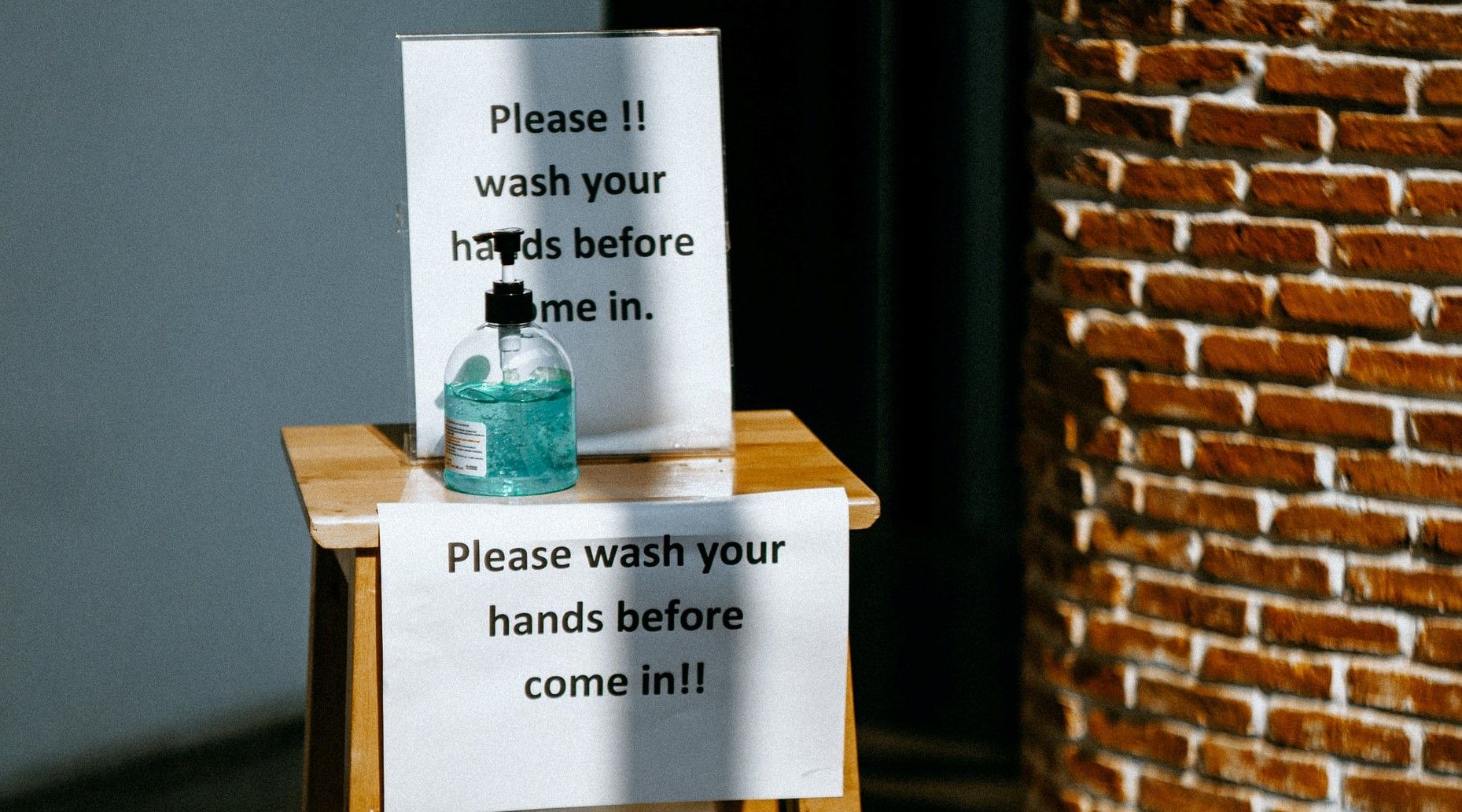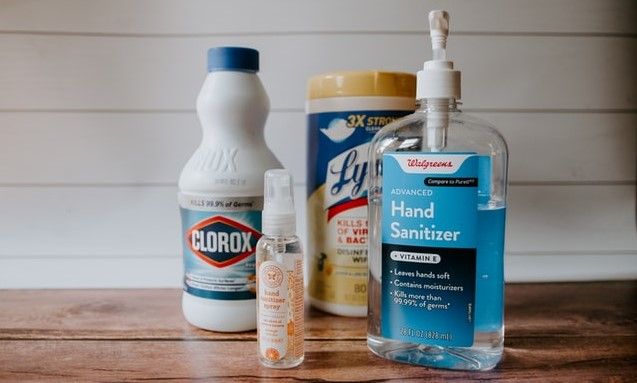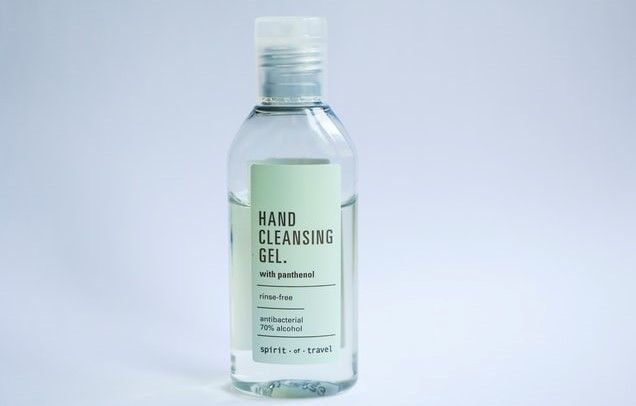Hand sanitiser is everywhere these days. In handbags, in shop doorways, on the petrol station counter, and at the school entrance.
And rightly so, using hand sanitiser is one of the best defences against catching coronavirus.
However, like everything in life, using hand sanitiser has its drawbacks. To help you solve them here we examine the 4 biggest problems with hand sanitiser so that you can continue using it with confidence and keep on staying healthy.

1. Hand Sanitizers Can Cause Dermatitis
Many people are suffering from skin problems through this period of extra hand washing and sanitising. It is the natural consequence of using chemicals on our hands more frequently.
“Increased contact with irritants and allergens may increase the risk of hand dermatitis or ‘eczema’, explains Dr Caroline Nelson, a Yale Medicine dermatologist. “This commonly manifests on the skin with redness, dryness, cracks, and even blisters that cause itch or pain.”
The advice to lessen the risk of dermatitis when using hand sanitiser is simple.
“Individuals should rub their hands together for about 15-30 seconds covering all surfaces with hand sanitizer until the hands are dry, and then apply a moisturizer.”
Solution: Use a moisturizer. Take it from experts such as Dr Nelson who says, “Using a moisturizer, ideally containing mineral oil or petrolatum, can help prevent hand dermatitis.”

2. It Smells Bad
Some hand sanitiser products smell bad because the manufacturers have cut corners in their choice of raw ingredients.
“That off-putting smell is the natural by-product of ethanol being made from corn, sugar cane, beets, and other organic sources,” notes Bryan Zlotnik of Alpha Aromatics, a perfume manufacturer which specializes in additives used to hide unpleasant odours in sanitizers. “[Ethyl alcohol] production is highly regulated. It stinks because these new brands are making and using denatured ethanol. This ethanol costs significantly less than ethanol filtered using activated carbon filtration, which would typically remove almost all contaminants and the malodour with it.”
In an interview with the New York Times, Zlotnik explained that denatured ethanol is such a popular choice is because it is cheaper to produce than ethanol which has been filtered using activated carbon filtration. The filtration system is an added cost and not essential for the hand sanitiser to work, but it does remove strong smells and contaminants.

While the bad smelling hand sanitiser products may be cheaper, the stink can put off family members (especially children) from wanting to use it, so it may be a better to spend the extra money on a higher-quality product.
Solution: Use a pleasant-smelling hand sanitiser, such as one from AG PROTECT’s wide range of hand gels and disinfectants.
To learn more about why hand sanitiser should smell good, read: Does your Hand Sanitiser Smell Bad? and Why it Shouldn’t
3 Frequent Use of Hand Sanitiser Can Lower Immunity
This problem is actually a myth, as there is no evidence that using hand sanitiser, even in the long-term, will affect your immune system in any way.
“There’s no risk that the overuse [of hand sanitiser] is making us more susceptible to other bugs or bacteria,” explains Dr Greg Goodman, the President of the Australasian Society of Cosmetic Dermatologists in an interview with ABC news. As he points out, “Nobody relies on getting bugs on their hands to increase immunity [and] it’s not absorbed through your skin to any degree at all, so there’s no risk there either.”
To learn more about the risks of continued hand sanitiser use, read: Are Hand Sanitisers Safe for Long-Term Use?
4 Some Hand Sanitisers Can Lower Fertility
Most hand sanitisers, including those made by AG PROTECT (which sponsor this website) are made using ethanol or isopropanol - as recommended by the World Health Organisation.
“However, there are some non-alcohol-based hand sanitizers that consist of an antibiotic compound called triclosan or triclocarban,” warns Dr Chris Norris, a Clinical Associate Professor at The University of California. “Several research studies have reported that triclosan is a health hazard as its overuse has negative effects on fertility, foetal development, and rates of asthma.”
According to Dr Norris, triclosan can also weaken the human immune system and cause hormonal problems.
Solution: Avoid hand sanitisers which use triclosan or triclocarban. Only use hand sanitisers with simple alcohol-based ingredients.

Ultimately, everyone is having to make their own choices about how they cope through the pandemic. Weighing up the risks against the inconveniences of staying at home, wearing a mask, and cleaning hands more frequently.
All of the government guidelines about staying healthy have drawbacks, be it staying away from friends and family, steamed up glasses, or dry hands. Hopefully, here we have been able to solve some of the issues connected to sanitiser use.
Certainly, they are good tips to share, for remember, the more hand sanitiser we use and the more we stay healthy, the sooner life can go back to normal.
If you are looking for good-quality hand sanitiser products that meet WHO and EU standards, then visit: AG PROTECT.
Photo credit: jKartak from Pixabay, Neil Bates on Unsplash, Kelly Sikkema, Kseniia Ilinykh, & Daniele Levis Pelusi